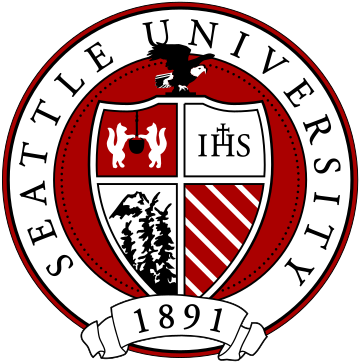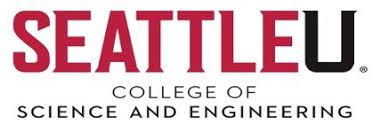

About Me
I’m Duy Nguyen, an MS in Data Science student at Seattle University. With my Bachelor's in Economics and UC Berkeley ML AI Professional Certificate, I am specializing in causal inference for tech, economics, and product platforms. I work with the PyWhy stack—DoWhy (assumptions → identification → refutation) and EconML (CATE/IV estimators)—as baselines, extending them with large neural models (neural IV, causal transformers) for treatment effects and counterfactuals. I also study how interpolation thresholds/double descent shape generalization in high-dimensional causal settings. My goal is to deliver interpretable, decision-ready causal insights for experiments, policy, and product decisions.
Skills
- Machine Learning
- Artificial Intelligence
- Causal Inference
- Data Analysis
- Python Programming
- Neural Networks
- Statistical Modeling
- Software Engineering Principles
- Learning Java and C++ (Implementing Data Structure and Algorithm)
Learning Tools
Interactive Subtree Algorithm Learning
Developed an enhanced educational tool to help students master the "Subtree of Another Tree" problem through animated, chain-of-thought visualizations and hands-on practice. This tool breaks down the recursive logic behind determining whether one binary tree is a subtree of another by illustrating each decision step.
- Built a dynamic, step-by-step visualization using SVG and JavaScript that highlights the chain of thought behind subtree matching.
- Implemented three learning modes (Learn, Practice, Challenge) to cater to diverse learning styles and deepen conceptual understanding.
- Provided progressive code templates with automated feedback, guiding learners through the algorithm's implementation and reinforcing best practices.
- Integrated an AI-powered code evaluation system to deliver personalized feedback on challenge submissions, helping users refine their solutions.
Research Projects
Geometric Implicit Regularization: Duy Integral Theorem
Developed a novel mathematical framework for understanding generalization in overparameterized neural networks through measure theory and PDEs. The research:
- Introduces the Duy Integral Theory, providing a rigorous explanation for why gradient descent discovers flat minima that generalize well
- Proves mathematically that sharp regions in parameter space experience exponential measure evacuation over time
- Establishes the formal connection between geometric properties of loss landscapes and generalization performance
- Offers theoretical justification for empirical observations in deep learning optimization
Projects
Academic Performance Analysis - Statistical Pattern Recognition
Conducted a comprehensive statistical analysis of academic performance using R-squared analysis and phase recognition. The project demonstrates:
- Applied statistical analysis to identify distinct academic growth phases (Adjustment, Transition, Stabilization, Mastery)
- Implemented data visualization using React and Recharts to create an interactive dashboard
- Quantified academic growth through R-squared analysis, showing progression from initial volatility (R² = 0.262) to strong linear correlation (R² = 0.855)
- Demonstrated resilience and continuous improvement through data-driven insights
AI Agent for ML-Business Alignment
Developed an AI agent to improve alignment between ML development teams and business stakeholders. The agent facilitates communication, provides crucial business context, and ensures ML models directly support strategic goals and KPIs. Key features include:
- Real-time context provision to ML teams
- Alignment of model evaluation criteria with business impact metrics
- Automated flagging of potential conflicts with business rules or market realities
- Streamlined access to relevant past models and business insights
- Significant reduction in knowledge transfer time and misalignment issues
UC Berkeley ML/AI - What drives the patient's length of stay?
This is a Capstone project exemplar from the UC Berkeley Machine Learning and Artificial Intelligence professional certification program (January-July 2024 cohort). It's provided as a reference for future students.
Developed a machine learning model to predict patient length of stay in hospitals, optimizing resource allocation and improving patient care. Utilized neural networks and ensemble methods to achieve high accuracy in predictions. Integrated an advanced AI chatbot, powered by a transformer-based neural network, to autonomously analyze the findings and provide concise decision-making guidance for stakeholders.
MOSAIC - AI Immigration Chatbot
Developed an AI-powered chatbot with SFU Blueprint for MOSAIC to assist Canadian Immigration Consultants, significantly enhancing user experience by providing personalized recommendations and real-time information in multiple languages. Leveraging technologies such as Flask for backend services, Neo4j for graph database integration, and OpenAI models for natural language processing, the chatbot efficiently processes user queries and retrieves relevant information. The project was shortlisted in the Top 4 of the SFU CS Diversity Award, recognizing its innovative approach to improving accessibility and efficiency for newcomers, immigrants, and refugees.
Simon Fraser University Faisal Lab - AI Medical Translation & Retrieval Engine
Developed a retrieval augmented generation software that translates doctors’ natural language requests into JSON, streamlining access to CT and MRI scan analytics through the DAFs application. Eliminated the need for medical professionals to memorize complex codes for report retrieval, potentially saving hours of manual reference time per week. Utilized Python and frameworks such as Llama Index and the OpenAI API to develop the software, enhancing efficiency and accuracy in processing natural language to JSON conversion.
Contact
Email: dcnguyen060899@gmail.com
LinkedIn: https://www.linkedin.com/in/duwe-ng/
GitHub: https://github.com/dcnguyen060899
Resume: https://ucberkeley-ml-ai-capstone.com/index_resume.html
